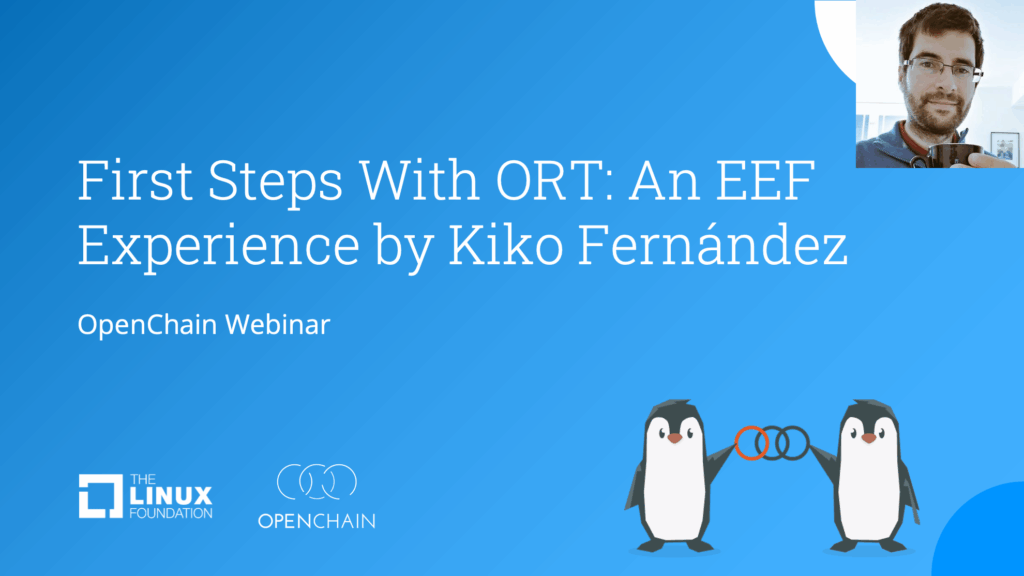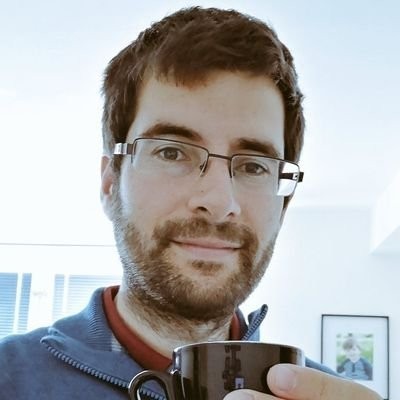
The OSS Review Toolkit (ORT) is a FOSS policy automation and orchestration toolkit that you can use to manage your (open source) software dependencies in a strategic, safe and efficient manner. The next OpenChain webinar will dig into how the Erlang Ecosystem Foundation (EFF) makes use of this tool to address compliance issues.
2025-05-27 @ 08:00 UTC / 09:00 BST / 10:00 CEST / 16:00 CST / 17:00 KST + JST
Join at the start time using this link:
This is part of the OpenChain and Friends: Stuttgart – Follow-Up Webinar Series. Learn more on its dedicated page!
Abstract:
Once upon a time, researchers at Ericsson developed Erlang/OTP, a programming language for the telecom industry. 39 years later, Erlang/OTP is used by the telecom, messaging, banking, and even game industry. Not only that, new languages were created and run on top of the Erlang BEAM virtual machine: Elixir, now a well-established language, and Gleam, the newest addition.
The proliferation of libraries and languages powering the BEAM ecosystem led to the creation of the Erlang Ecosystem Foundation (EFF),a foundation that caters for the BEAM ecosystem.
Today, 39 years from the creation of Erlang, it is not an easy task to categorise and be compliant with the more than 13000 (total) files that make up Erlang, Elixir, and Gleam. Yet, Erlang and Elixir are OpenChain compliant, and Gleam compliance is work in progress.
What steps took EEF towards making sure that Erlang, Elixir, and Gleam comply with the different licenses and copyrights?
This presentation features the collaboration between the Erlang/OTP team (Ericsson) and the Erlang Ecosystem Foundation (EEF), and the steps taken, and experience of using ORT as a crucial part of the EEF Ecosystem.
Our Speaker:

My name is Kiko Fernandez-Reyes and I work as a software engineer in the OTP team, building and improving the Erlang programming language at Ericsson. Before that, I was a backend software engineer at Klarna.
Before Klarna, (in 2014) I did my Ph.D. at Uppsala University where I developed concurrent and parallel programming languages for our research compiler. Among them, I developed typed-based optimisations for future-based programming languages and a capability-based dynamic language design that maintains data-race freedom and satisfies the gradual guarantee.
Experience:
I have industrial experience with Haskell, Erlang, Python, among others and deployment languages and technologies, ranging from AWS to Ansible. During my research I have used heavily Haskell and C, and some Scala. I was the main lecturer of the course Advanced Software Design, where I taught object-oriented design ~80 master students.
My work has received the following awards:
– Distinguished Artifact Award at Software Language Engineering (SLE), 2019
– Distinguished Artifact Award at European Conference in Object-oriented Programming (ECOOP), 2019
– Best Paper Award at International Federated Conference on Distributed Computing Techniques (DisCoTec), 2018
– Best Paper Award at International Conference on Coordination Models and Languages (COORDINATION), 2018
Interests:
I am interested in type systems, programming languages, functional programming, compilers, and different logics. I promote open source technology, writing regularly in opensource.com. I also promote gender equality through the ACM-W student chapter at Uppsala University.
More About Our Webinars:
This event is part of the overarching OpenChain Project Webinar Series. Our series highlights knowledge from throughout the global OpenChain eco-system. Participants are discussing approaches, processes and activities from their experience, providing a free service to increase shared knowledge in the supply chain. Our goal, as always, is to increase trust and therefore efficiency. No registration or costs involved. This is user companies producing great informative content for their peers.
Check Out The Rest Of Our Webinars
This OpenChain Webinar will be broadcast on 2025-05-27.
